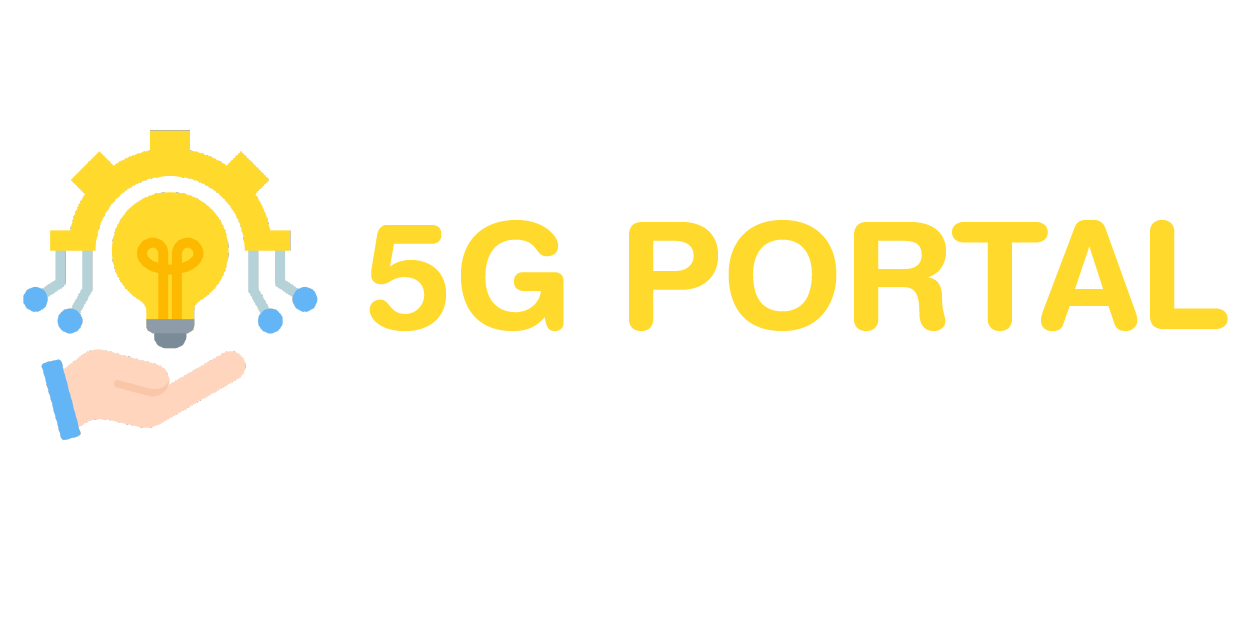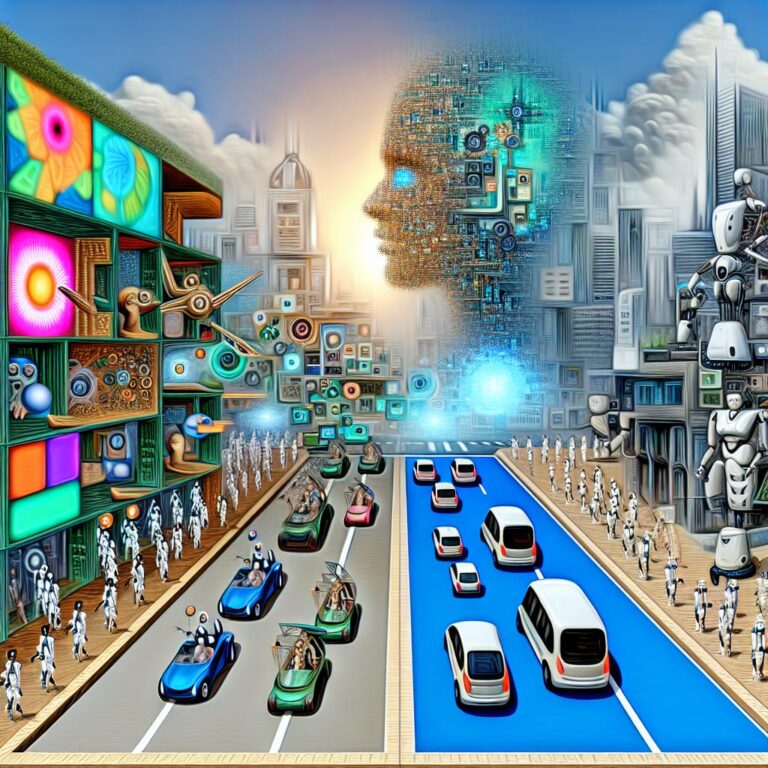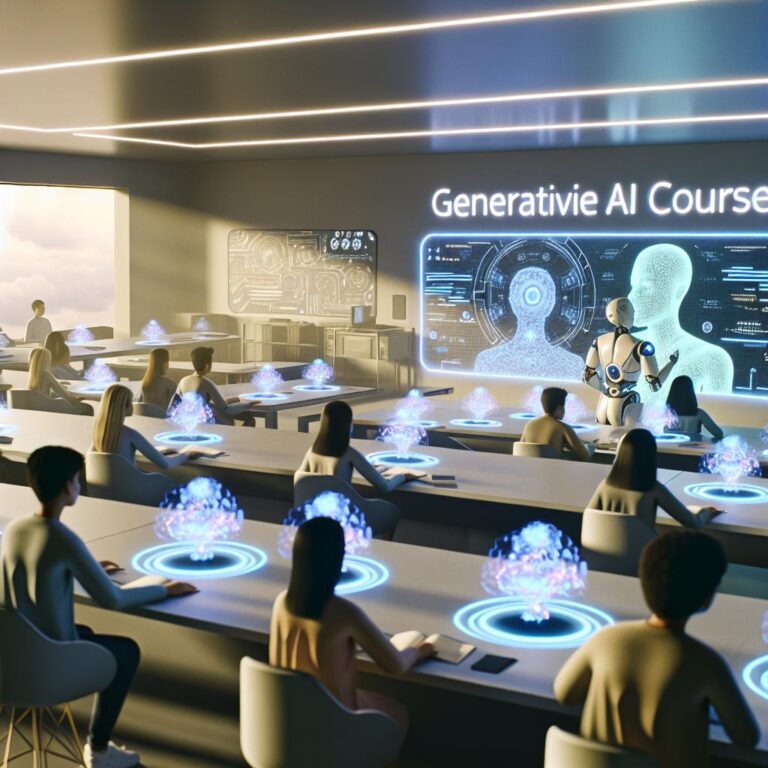How will generative ai in healthcare bring change?
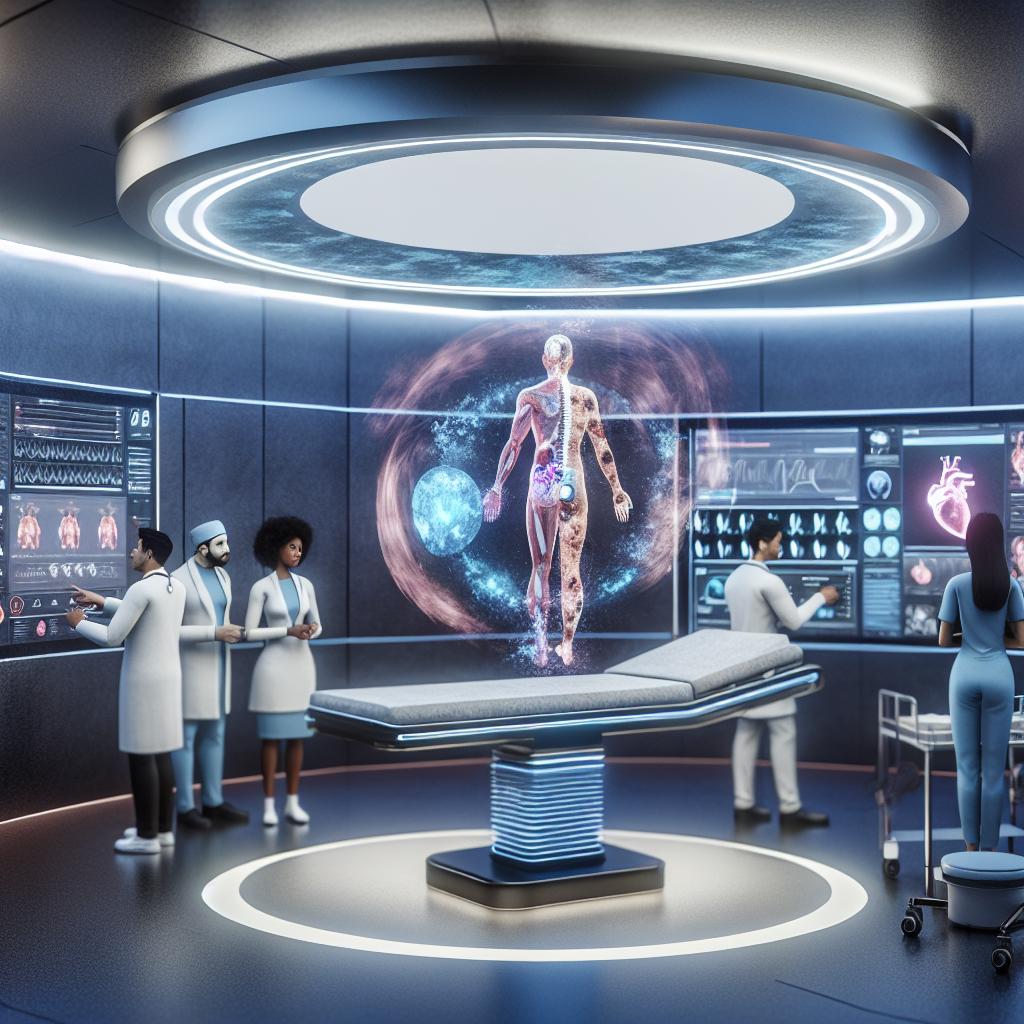
- Generative AI in healthcare automates tasks, analyzes complex data, and improves diagnostics, streamlining processes and reducing errors.
- AI enhances patient outcomes with quick, accurate diagnoses, such as detecting prostate cancer with tools like Paige.AI.
- AI innovations include chatbots and personalized care, ensuring patients receive timely information while maintaining data privacy.
- AI supports doctors in diagnostics, identifies patterns, and uses predictive analytics for early intervention in diseases.
- AI accelerates pharmaceutical research by automating drug discovery, creating synthetic control groups, and streamlining data analysis in clinical trials.
- In personalized medicine, AI tailors treatment plans based on genetics and lifestyle, improving therapy effectiveness.
- Ethical considerations include data privacy, accountability, and fairness when implementing AI across healthcare.
- AI optimizes clinical workflows and hospital management, enhancing efficiency and patient care.
- Remote and real-time healthcare solutions leverage AI for monitoring and telemedicine, improving accessibility and responsiveness.
Imagine your healthcare experience with a machine learning assistant by your side. Generative AI is on the verge of transforming the healthcare world, poised to improve patient care like never before. With AI's ability to predict, diagnose, and treat, we can expect a revolution. I'll uncover how AI can enhance outcomes, change patient interactions, and reshape diagnostics. Are you ready to see how AI can change healthcare forever? Read on to find out.
How is Generative AI Revolutionizing Patient Care?
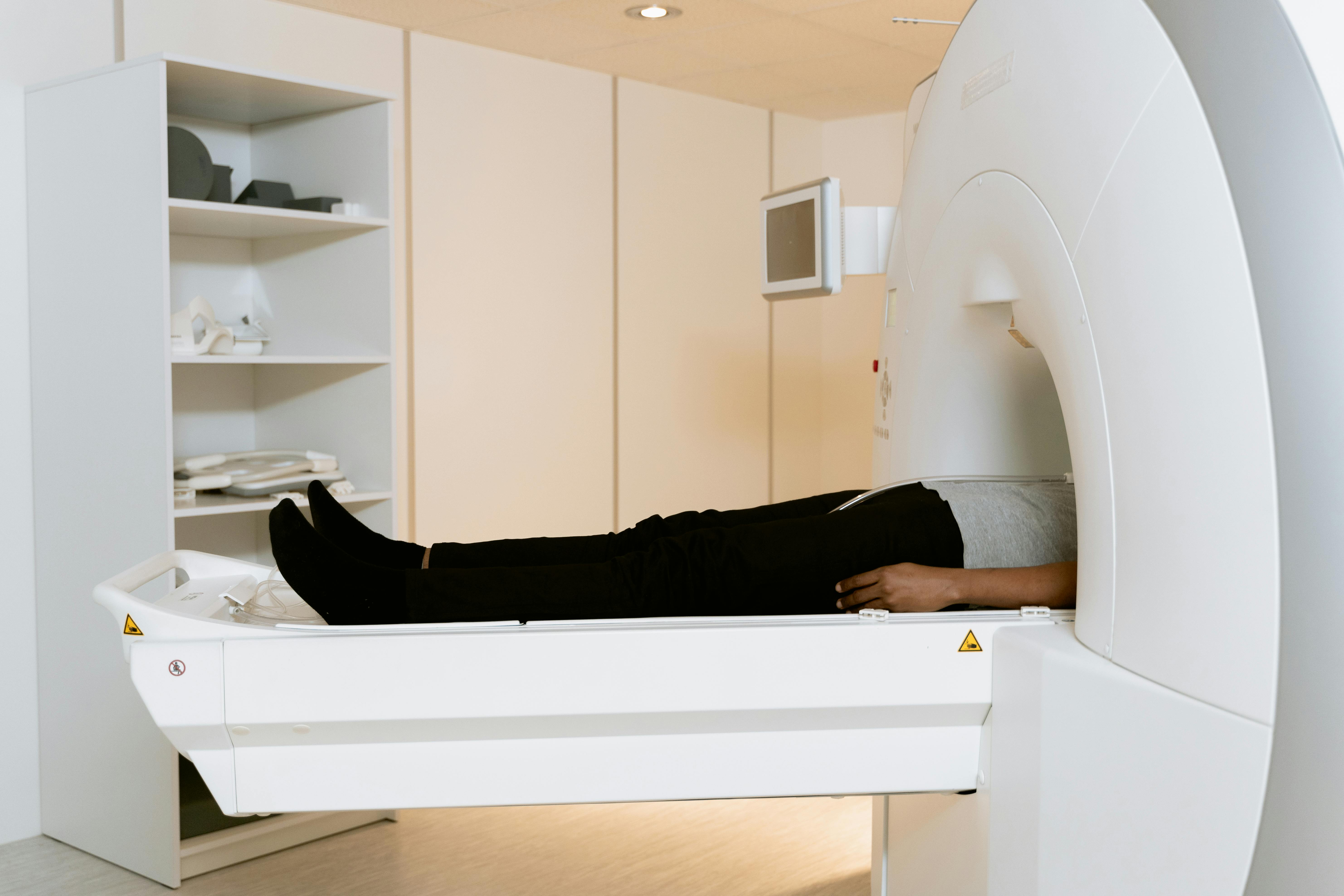
Generative AI offers many benefits in healthcare. It processes data from medical records and images and increases efficiency. This technology can automate tasks and reduce errors. Many healthcare leaders find it appealing because it modernizes the system.
What are the Benefits of Generative AI in Healthcare?
Generative AI can read and analyze complex data. It finds patterns that humans might miss, helping doctors diagnose patients quicker and more accurately. Hospitals using AI see improved patient care and outcomes. This tool streamlines processes, saving time and resources.
How is Generative AI Enhancing Patient Outcomes?
Generative AI leads to better clinical outcomes. For example, Paige.AI uses it to detect prostate cancer, with FDA approval. This tool aids in quick, accurate diagnoses. By examining more information swiftly, AI enables doctors to treat diseases more effectively.
How are AI Innovations Transforming Patient Interactions?
Digital health solutions use AI to empower patients. Chatbots guide patients in managing their health at home, cutting costs. AI provides personalized care and answers patient questions. This technology ensures patients receive timely, helpful information. Secure and private handling of patient data remains crucial, ensuring user trust in these tools. For more information on how hospitals use AI technologies, check out this link.
How is AI Driving Innovation in Medical Diagnostics?

How is AI Applied in Diagnostic Procedures?
AI in diagnostics supports doctors in making fast, accurate diagnoses. For instance, AI systems can examine vast amounts of patient data. They then identify patterns and suggest possible conditions. This helps doctors decide on the right tests to order. Generative AI learns by analyzing clinical notes and images. It improves over time, becoming better at predicting outcomes and required treatments. This tech reduces guesswork in diagnostics.
What Role Does Predictive Analytics Play in Medicine?
Predictive analytics uses AI to analyze trends in healthcare data. It predicts how diseases might progress. For example, it can forecast outbreaks or suggest treatment pathways. This process involves collecting data from patients' records. AI then processes this data quickly, providing insights about future health trends. By using these insights, doctors intervene early, preventing complications.
How is AI Streamlining Medical Image Analysis?
Medical image analysis AI speeds up examining scans, such as X-rays or MRIs. AI tools spot patterns that might be missed by the human eye. They highlight areas of concern for radiologists to review. For instance, AI helps in detecting cancer early by finding small changes in tissue. This quick analysis means patients start needed treatments sooner. It not only enhances accuracy but also saves precious time in diagnosing conditions.
What are the Implications of Generative AI for Pharmaceutical Research?
How is AI Accelerating Drug Discovery?
AI speeds up drug discovery by processing data swiftly. It finds patterns in research that humans might miss. For example, AI-powered drug discovery helped develop a potential drug for idiopathic pulmonary fibrosis. AI analyzes vast databases to predict effective compounds directly.
In What Ways Does AI Innovate Pharmaceutical Research?
AI brings change by automating research tasks. It simplifies data analysis, allowing scientists to focus on big decisions. For instance, AI imagines new drug molecules and predicts their success rates. The technology enables rapid testing without the need for extensive lab work.
How Could AI Transform Clinical Trials?
AI improves clinical trials by creating synthetic control groups. This reduces the need for real volunteers, speeding up trials. AI also analyzes trial data more efficiently, spotting trends or issues early. This makes testing safer and can bring lifesaving drugs to market faster.
In summary, generative AI reshapes drug discovery and trials through swift, precise data handling. It innovates by removing manual bottlenecks and improving safety in research, guiding future pharmaceutical advancements.
How Does AI Facilitate Personalized Treatment Plans?
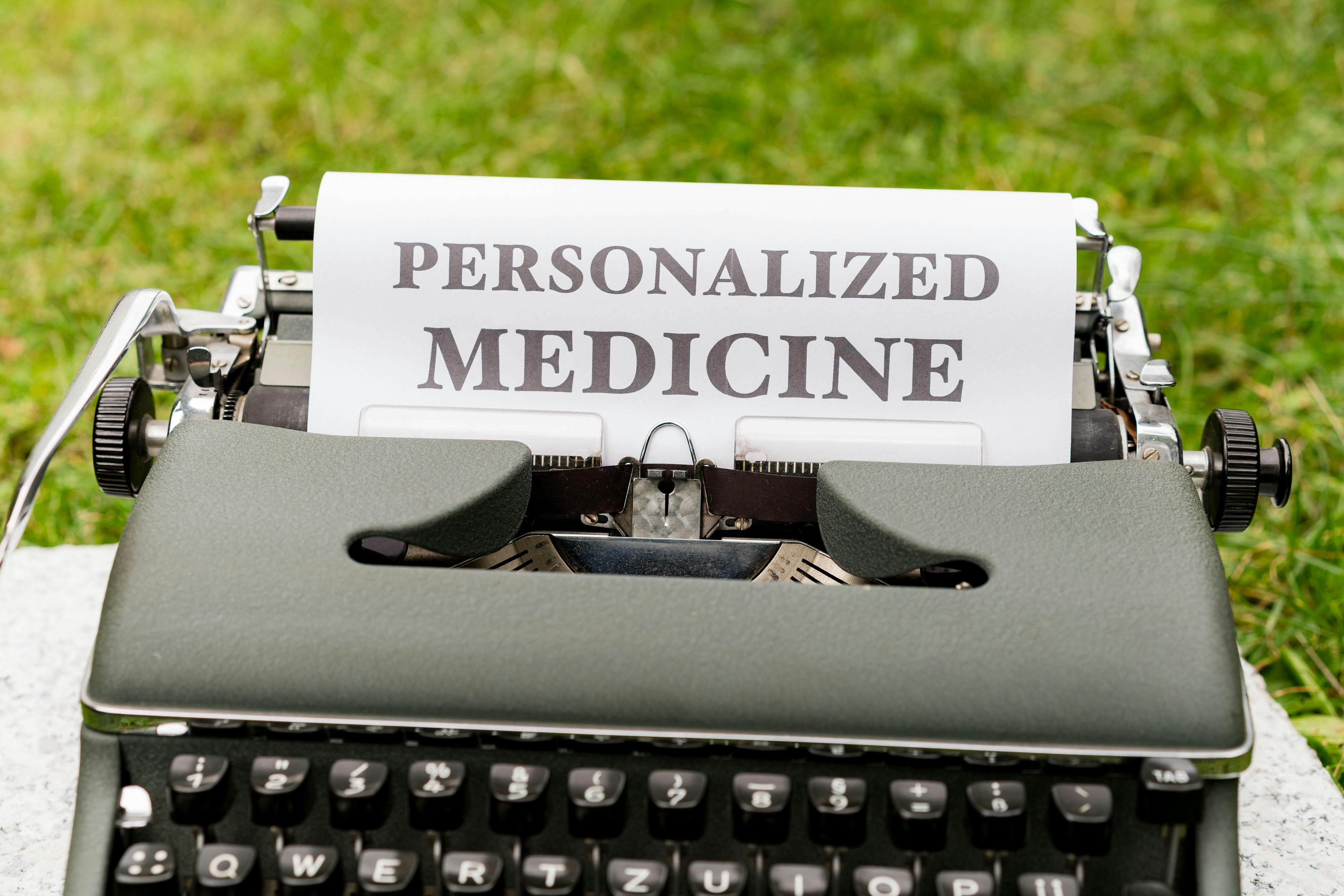
Personalized medicine is transforming healthcare by using AI technologies. But how does this work?
How is AI Used in Personalized Healthcare?
AI analyzes personal data like genetics and lifestyle. It matches patients with treatment plans that fit them best. AI for personalized treatment can predict how a person will respond to a drug. This helps doctors choose the most effective therapies without guesswork.
What Role Does AI Play in Tailoring Treatment Plans?
AI studies medical records and compares them with vast data pools. It identifies trends and outcomes, tailoring treatment plans to each patient. By using personalized medicine AI, it adapts treatment to each individual’s needs. This leads to better health results and fewer side effects.
How Can AI Deliver on the Promises of Personalized Medicine?
AI delivers on personalized medicine by making sense of complex health data. It combines information from genetic tests, medical history, and smartphone health apps. Patients get a care plan as unique as their fingerprint. Adapting AI technologies creates solutions that once seemed impossible, changing healthcare one patient at a time.
For more details about AI in personalized healthcare, you might explore the NIST guidance on AI implementation.
What Ethical Considerations Arise from AI in Healthcare?
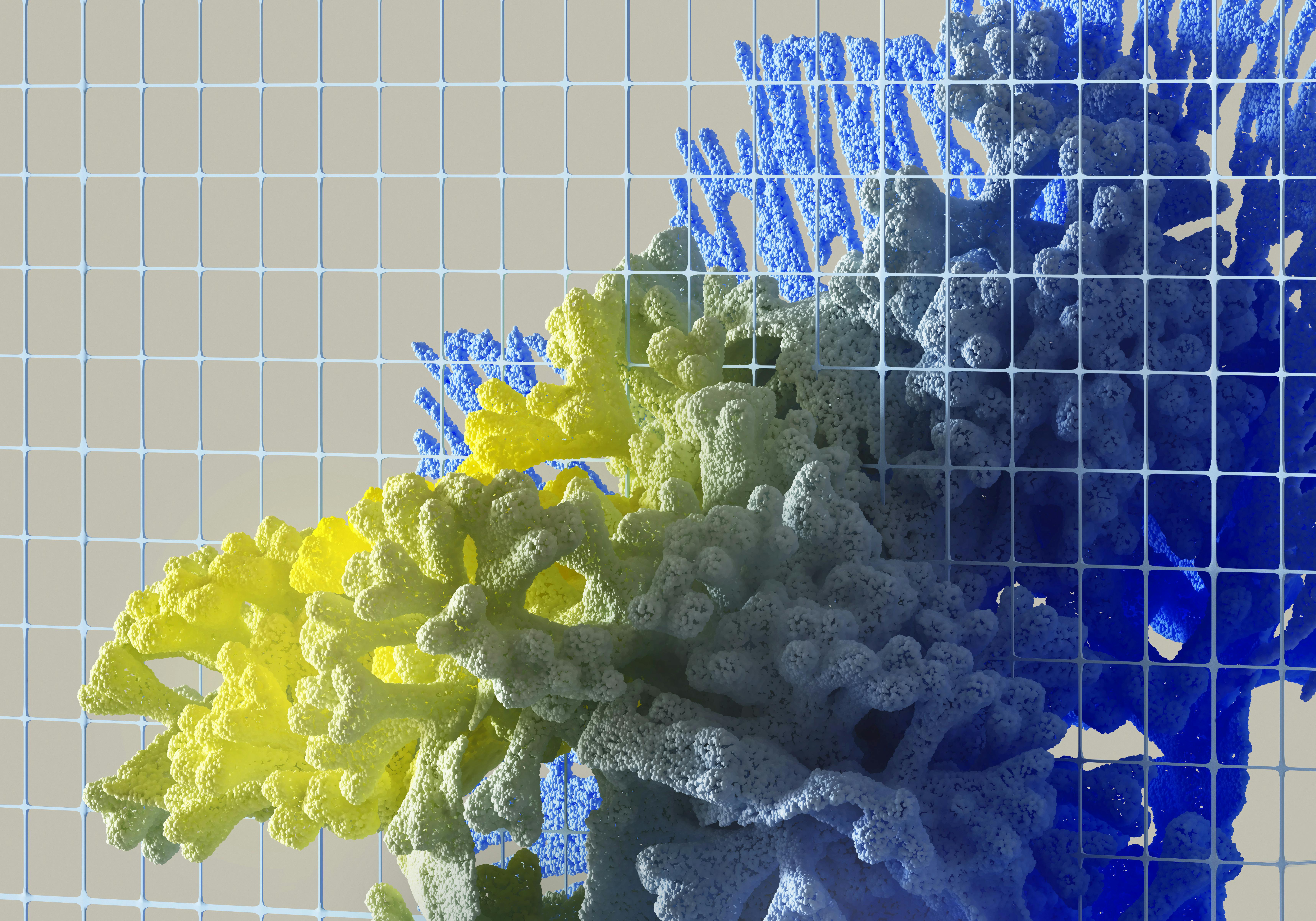
What Are the Key Ethical Challenges in Using AI for Healthcare?
Using AI in healthcare has clear ethical challenges. The number one concern is data privacy. How can we keep patient data safe from leaks? We must also ask, who is responsible if an AI makes an error? This raises accountability issues.
Fairness is another challenge. If AI is biased, results may not be fair to all. For example, certain groups might face skewed health solutions. We must ensure AI treats everyone equally and without bias.
How Does AI Impact Health Data Privacy?
AI processes vast amounts of health data. So, data privacy becomes a major worry. Each patient trusts that their info stays private. But AI often needs access to much data to work right. We need secure and robust systems to handle this data.
Data breaches risk external link patient trust and confidentiality. Healthcare teams must establish strong privacy protocols to prevent this. The aim is to keep data secure and out of unwanted hands.
How Are Ethical Frameworks Evolving in AI Healthcare?
Ethical frameworks for AI in healthcare are evolving. These frameworks guide the fair and safe use of AI technologies. They include policies for data use and rules against discrimination.
Frameworks now emphasize transparency. Systems must be clear in their decisions and actions. This clarity helps trust between patients and healthcare providers.
Organizations are creating guidelines to govern AI use, ensuring every step takes ethics into account. These evolving frameworks seek to protect both patients and healthcare service providers while leveraging AI's powerful potential.
How is AI Advancing Clinical Workflow and Hospital Management?

How is AI Revolutionizing Clinical Workflows?
AI is enhancing clinical workflows by automating many tasks. It can read and interpret large amounts of data. This means doctors can spend more time with patients. AI tools can assist with diagnosing conditions from images. It leads to faster answers for patients. Machines don't get tired, so they don't make as many mistakes as humans might. With AI, hospitals can manage schedules better and reduce wait times. AI helps keep track of patient records efficiently. It allows healthcare providers to focus more on care, not paperwork.
What is the Impact of AI on Hospital Management?
AI greatly helps hospital management by streamlining processes. It uses patterns in data to make smart decisions. For example, it can predict busy times and staff needs. It ensures the best use of hospital resources. AI capabilities help in reducing costs and making operations smooth. By analyzing trends, AI suggests improvements in care delivery. Hospitals using AI can achieve higher patient satisfaction. With such tools, hospitals become more efficient and productive. When management runs smoothly, patient care also improves greatly.
How Does AI Contribute to Automation in Health Administration?
AI contributes to automation by taking over many routine tasks. It processes insurance claims quickly. This reduces paperwork, saving time for staff. AI checks and updates patient information automatically. It ensures data accuracy and consistency. In many cases, it handles appointment scheduling. This reduces errors and double-booking issues. Automation allows healthcare providers to manage huge data sets effortlessly. AI's role in health administration helps cut down the administrative burden. This lets healthcare professionals concentrate on patient care and service quality. You can learn more about AI's impact on patient care.
How is AI Transforming Remote and Real-Time Healthcare Solutions?

How is AI Enabling Remote Patient Monitoring?
AI helps monitor patients outside hospitals. It collects data from devices like wearables. This data tells doctors about a patient's heart rate or sleep patterns. With more data, doctors make better decisions. It keeps patients safe at home and reduces hospital visits. Remote patient monitoring with AI saves time and resources.
How Does AI Enhance Real-Time Health Monitoring?
AI reviews health data instantly. It alerts doctors if something is wrong. Real-time health monitoring AI keeps track of vital signs continually. This quick response can prevent serious health issues. It aids in early detection of health changes. Continuous monitoring supports immediate treatment, which can save lives.
What Role Does AI Play in Telemedicine Integration?
AI makes telemedicine faster and more efficient. It sorts and presents information to doctors. With AI, communication between patient and doctor improves. It helps diagnose and suggest treatments remotely. AI in telemedicine integration connects patients to their doctors easily. This makes healthcare more accessible.
Conclusion
We've explored how AI reshapes every aspect of healthcare. From boosting patient care to tailoring treatment plans, AI is driving incredible changes. It offers faster diagnostics, personalized medicine, and even innovates drug discovery. Yet, ethical challenges and data privacy remain key hurdles. As AI progresses, it will continue to redefine both patient interaction and medical processes. Embracing this change can lead to smarter, more efficient healthcare systems. Stay informed and curious about these exciting advancements shaping our health future.
